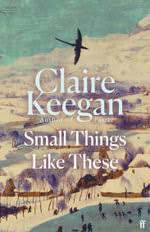- Mohsin Hamid is the Man Booker shortlisted author of The Reluctant Fundamentalist and Exit West, a story of love, loss and rediscovery in a time of unsettling change.
- His new novel, The Last White Man, despite its title suggesting more of the same, is unfortunately a complete dud. It's riddled with a feeble sentimentality, the exact opposite of 'powerful' as the back cover blurb heralds.
- Hamid has given us two stories - one exploring racial tensions in a town in America, and the other celebrating family love and devotion. They don't integrate at all. It's a confection that just doesn’t work.
- Anders is white but one morning wakes up brown. He works at a gym. The clients like him a lot.…or they had, for it did not quite feel that way now….because his sense of being observed, of being on the outside, looked at by those who were in..
- Oona, his girlfriend, is into meditation and mindfulness, and she teaches yoga. Her twin brother died a few years previously from a drug overdose. She moves back in with her mother. As more and more whites are turning brown racial animosity is becoming nasty. Gangs are on the prowl at night.
- Anders’s father remains unconcerned. He's a retired and now ailing construction foreman, and life-long smoker. Anders spends a lot of time in the family house now, looking after him. Oona’s mother sides with the whites. We needed our own places…the dark people could have their own places…
- Finally the whole white community has turned brown, apart from Anders's father, the last white man, who dies instead.
- So we're into a story of parenthood, family death, legacy and love. The brown plague plot is receding from centre stage. People are becoming more sensitive, aware and compassionate as the dark skin change becomes widespread. And Anders’s and Oona’s relationship is maturing. Their sex now slow, unhurried…they came close, closer than they had come before. The years go by and their daughter is born.
- Hamid's writing is introspective, reflective and frequently convoluted in a poetic way, with sentences that require re-reading, and some very long and circular in a pretentious metafictional way. The problem is it gets exquisitely boring as it moves along. Hamid lulls us into a slow meaningless.
- It's meant to be a celebration of love and family but what we're really getting instead is a massive over-dramatisation of the ordinary. The going dark thing is totally unrelated. The parallel stories don’t connect.
- And a major issue in the novel that I find really problematic is the positive portrait of a society that is racially homogenous. Be either exclusively white or brown but don't mix. And where are the African-Americans and Asians? Where is the celebration of multiculturalism? And where are the Indigenous peoples?
- As I said, a complete dud.







